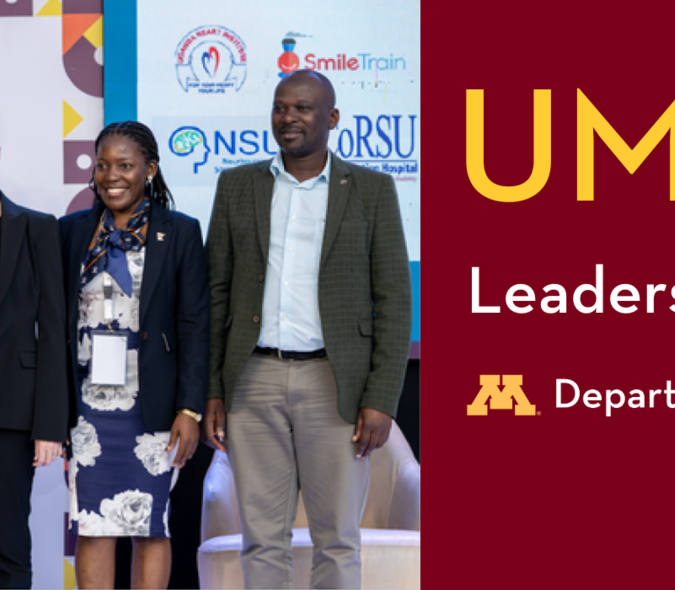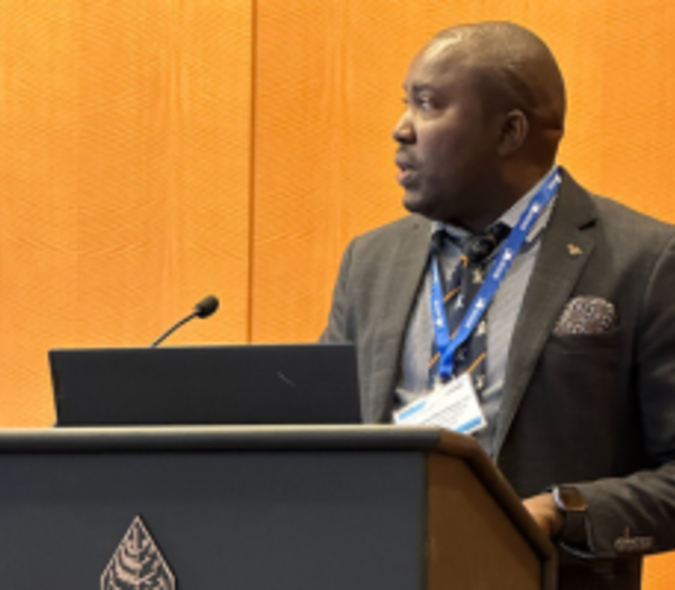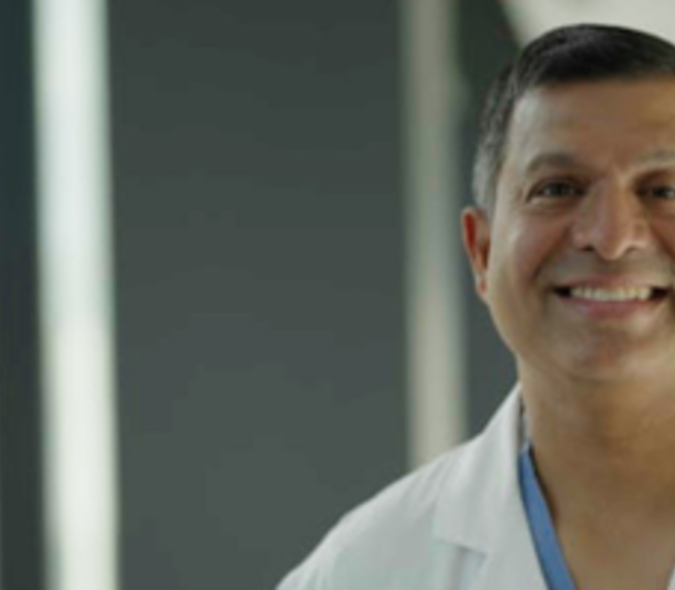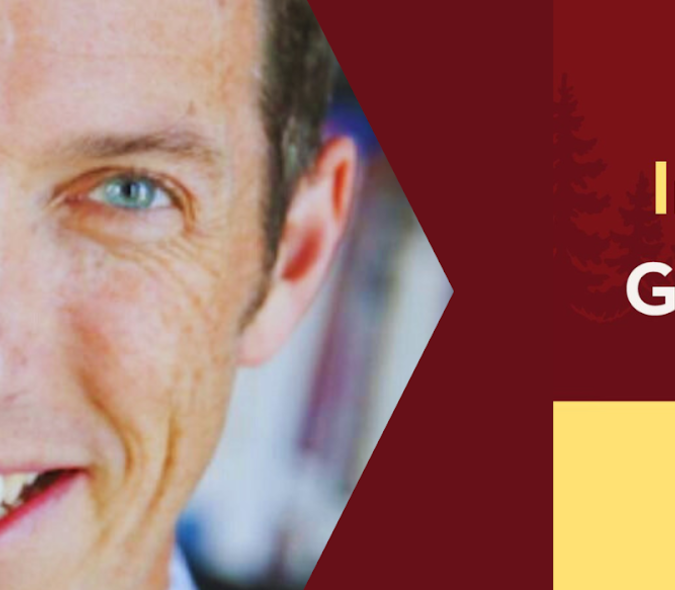
OBSERVATIONS ON COVID-19 DISRUPTIONS FROM DR. JEFFREY CHIPMAN
Dr. Jeffrey Chipman is the Executive Medical Director, of the Critical Care Domain, M Health Fairview, Frank B. Cerra Professor of Critical Care Surgery and Division Head, Critical Care and Acute Care Surgery, University of Minnesota
During the COVID-19 crisis, Dr. Jeffrey Chipman provides his observations.
M Health Fairview Bethesda Hospital (known internally as the COVE) transformed from a long-term acute care hospital, is Minnesota's first hospital dedicated solely to treating patients with severe cases of COVID-19. On March 26, the first patient arrived. I have watched the beds fill and many discharged home to continue their recovery. Inspired by what I have witnessed, I want to share with you my Thoughts from the COVE in these periodic emails.
Subscribe to receive Dr. Chipman's COVID-19 updates in your email.
Not A Flu Jab - February 2021
 I got my second dose of the Pfizer COVID-19 vaccine last week. I wish I could say it was like any other vaccination, involving nothing more than a sore deltoid at the injection site. But I got slammed with this one. And from the sound of it, others did too. I’m not complaining. I will gladly go through fevers, rigors, and headaches to avoid getting COVID. 24 hours of symptoms was hard but tolerable. I can’t imagine having them for a week or longer.
I got my second dose of the Pfizer COVID-19 vaccine last week. I wish I could say it was like any other vaccination, involving nothing more than a sore deltoid at the injection site. But I got slammed with this one. And from the sound of it, others did too. I’m not complaining. I will gladly go through fevers, rigors, and headaches to avoid getting COVID. 24 hours of symptoms was hard but tolerable. I can’t imagine having them for a week or longer.
The day after I received the first dose, I volunteered in the vaccine clinic and ended up actually giving injections. I even vaccinated some of the surgery staff and residents. Occasionally I had to reassure people that, while I am not a nurse, I do know my way around sharp instruments. While giving the vaccine was a request from hospital leadership, I didn’t realize how important and symbolic giving the vaccine was going to be for me personally. It was the first time I had done something to actually treat this disease. All I had done until now was treat the disease’s symptoms. I was finally doing something proactive rather than reactive.
Even though vaccine administration hasn’t been as fast as desired, our healthcare system has done a great job at distributing all of its allocation. I’m also proud that trainees were included in the initial high priority distribution without a second thought in contrast to some other high-profile institutions.
Not surprisingly there are a number of folks declining the vaccine for a variety of reasons. While it would be easy to criticize, it is important to recognize the concerns as real and try to understand their motivation. Educating, instructing, reassuring, and acknowledging the concerns will help more than condemning, shaming, and belittling. Just look at what name-calling and labeling has accomplished in the political realm. And as mentioned, the side effects for many are not trivial. I have a better understanding of how fearful some may be.
President Biden has made a big commitment to widely distribute and administer vaccines in the fastest time frame possible. 100 million vaccines in 100 days. This is one of the few presidential promises I can remember that would benefit all segments of society. I truly hope he can lead it to completion.
Hope - January 2021
The last patient left Bethesda Hospital on November 5 as the COVID cohort was relocated to St. Joseph’s Hospital about 5 blocks away in St. Paul. Just under 1000 patients received care at Bethesda, one third in the ICU. It is a proud end to a long history. The building is tired and out of date but served the purpose well. I’m honored to have had spent time there. On the sixth floor is a suite of abandoned offices that the intensivists occupied. They overlook the state capitol and governmental office buildings. The lack of people and activity around the capital over the last 6 months has been a stark reminder of this pandemic’s fallout. The busiest place on capitol hill has been Bethesda.
Some have wondered why close Bethesda at a time when the pandemic was in a new (second?) wave. It’s about logistics and the future. With the reality of the future closure of St. Joseph’s Hospital came the opportunity to turn Bethesda over to a new mission of housing the homeless while maintaining the COVID cohort, at least in principle. I say “at least in principle” because the pandemic has escalated and now exceeds the ICU bed capacity of at any of our hospitals. We have even created additional ICU capacity in non-ICU settings. This is scary because of the potential increase in patients who become infected at holiday gatherings. This year’s Thanksgiving blessing may be that our state leaders finally broke radio silence and shut down some gathering places. Moreover, people may have listened and acted to protect themselves. It is now about two weeks after Thanksgiving and our numbers have been fairly stable. Let’s hope it continues.
Speaking of hope, vaccines are appearing on the horizon. Two are close to being approved by the FDA for emergency use, with a third close behind and several others rounding the last corner. Pessimistic pundits talk about the challenging logistics of distributing and mass administration, particularly because of the cold temperatures necessary for vaccine storage. However, I am confident that the dollar signs associated with success will overcome those barriers. I also don’t think freezer space or availability is an issue. Minus 85-degree freezers are all over the University, and anyone who has ever dug through one knows they are like the freezer at home. Half the stuff in them is unidentifiable, sort of like that piece of beef purchased on sale in 20?? that is half-buried in frost. Maybe we should go KonMari on the freezers like many of us have with our homes. Based on the lines at the Goodwill dropoff, I think everyone has been spring cleaning into the fall.
I’m hoping for a better and more cluttered 2021.
The System
I have an uncle who loves the outdoors and equally, loves the gear that makes his outdoor activities possible. Once an avid skier, he called it quits as a consequence of his profession. As an orthopedic surgeon - in Vail, Colorado no less - he saw more than his fair share of broken bones, destroyed knees, and messed up shoulders. All that mayhem made him search for an alternative. In its place, he became a mountain biker and later a road cyclist. (We will leave the debate about the relative safety of skiing versus cycling for another day.) Fly fishing became another substitution. The quest for mountain trout, bonefish in the Christmas Islands, or steelhead salmon in Canada helped fill his time away from work. As for his gear, he used the phrase, “if it’s not the best, it’s broken.”
He quit operating when operating was no longer fun. He said it happened when the “system” started to negatively influence what he considered could be his best performance. New teams, less expensive equipment, and surgical assistants assigned by the hospital and not chosen by him compromised his best efforts. He felt guilty for not having done the best for his patients. The system was broken, and so was he. The decision to leave was easy because he had much to occupy his time. There was a lot of fish to catch.
Perhaps we’ve all had that feeling when the system seems to make it more difficult than it needs to be for the patient and for us. Because the system is held responsible for any risk of COVID transmission, the families and friends of COVID patients can’t visit. They can’t see what six weeks on a ventilator does to a patient. They can’t see the suffering. And as a result, most of us feel that they are less likely to make realistic and humanistic decisions as patient surrogates. It is what the “system” demands. And more and more, it is obvious that the system doesn’t have a heart. In spite of it, let us make sure ours doesn’t stop beating as well.
UPDATE 10/22/2020
M & M
UPDATE 10/9/2020
The When Then Phenomenon
At times it is easy to think that by simply reaching some future date or milestone, everything will magically be better. I call it the “when then phenomenon,” and some of us are very good at using it. The surgeons may have developed this maladaptive skill as a coping tool to justify the sacrifices required to join our professional ranks. Have you ever talked to yourself this way? When I finish this exam, then I will stay caught up on the reading. When this semester ends, then I’m going to stay organized with my studies. When this school year ends, then I’m going to start exercising regularly. When I get into the hospital and clinics, then I will shine in med school. When I start my residency, then I’m on the homeward stretch. When I finish residency, then… When this paper is submitted, then… When this grant is written, then….
Update from Jeffrey Chipman 09/30/2020
Recreational activities that accommodate social distancing have seen a boon this year. Sales of bicycles and accessories have made records. One shop reported that by July they only had about 20% of their normal inventory remaining and little chance of restocking. I went to buy a bike rack for my car. I was told by the shop I could be number 15 on the waiting list. I’m pretty sure the salesman rolled his eyes at yet another oblivious customer. High demand combined with poor supply (the bikes are made in China) made for a perfect sales storm. I’ve heard the same is true with golf and other activities like hiking. My mountaineering son described the roads in Utah’s High Uintah Wilderness area as parking lots on the weekends. The emphasis here is on wilderness…few primitive amenities, no motorized vehicles, and no Starbucks. Only one’s personal preparation, feet, and strength are allowed. Probably too few actually had the Ten Essentials for hiking, but at least being in a wilderness area meant they had the distancing essential of COVID-19 prevention.
UPDATE From Dr. Jeffrey Chipman: 09/11/2020
Meetings
There have been a lot of meetings with the COVID pandemic. Most have been very constructive. But it’s easy to turn a good meeting into a bad one. One example is a recent meeting urgently called about a not-so-smooth hospital admission. The problem was that the not-so-smooth part occurred because the solution created in the last urgent meeting wasn’t followed! And it wasn’t because the solution wasn’t communicated, but because those calling for the urgent meeting hadn’t bothered to read.
UPDATE From Dr. Jeffrey Chipman: 09/04/2020
Dr. Najarian
During the middle of Grand Rounds on Tuesday, I received a text informing me of the death of our former Chair, Dr. John Najarian. One of my first thoughts was disappointment in how the pandemic’s restrictions would limit us from celebrating his amazing life. Then I considered that Dr. Najarian would probably just roll with it and do something even larger down the road. He always seemed to have a cheerful disposition and a twinkle in his eye. After reading the book, King of Hearts by G. Wayne Miller, about C. Walton Lillehei and the origins of open-heart surgery, I asked Dr. Najarian what he did to try to placate a disaffected Dr. Lillehei after arriving as Department Chair in 1967. (Dr. Lillehei left soon after to be Chair at Cornell). I was looking for a nugget of Najarian leadership, and maybe a little shade too. He just looked at me, smiled, and said, “it was an interesting time.”
UPDATE From Dr. Jeffrey Chipman: 08/13/2020
Dear Colleagues,
Earlier in the summer, I took a day off to decompress. I was feeling close to the limit. I placed an “out of office reply” in my email, and as often is the case with email, the tone of my message was not quite what I was trying to convey. I forget exactly what I wrote but it prompted Dr. Archana Ramaswamy to immediately text me to find out what was wrong. I am incredibly grateful to know that people in our department are looking out for others and I hope it never stops. It is one of the best things about the Department of Surgery. Thank you, Dr. Ramaswamy.
UPDATE From Dr. Jeffrey Chipman: 07/30/2020
Dear Colleagues,
“So we beat on, boats against the current, borne back ceaselessly into the past.” This is the last line of F. Scott Fitzgerald’s classic novel The Great Gatsby. It suggests that it is futile to attempt to move forward, to reach one’s dreams, to make progress. A less depressing interpretation is that the themes of progress are recurrent; that we must always strive to improve; that the battle with entropy is real. Both interpretations can be applied to the events of the last three months. The conflicts of racial injustice continue. Wide divisions of political opinion are older than our republic. Even viral pandemics are not new.
UPDATE From Dr. Jeffrey Chipman: 07/27/2020
Dear Colleagues,
This last month was my 25th anniversary of the Columbia University College of Physicians and Surgeons class of 1995. It was a wonderful affair. But instead of fine New York dining, I ate take out Indian food as I participated on zoom. Not surprisingly, COVID-19 dominated the conversation. Many of my classmates practice in New York City and surrounding areas. Each talked about how real and devastating the disease is and how it commanded the work attention of all. I was surprised that many of them feel that the city needs to get to the new normal as quickly as possible because the fallout from not will be even greater. All said they were afraid New York City would never be the same.
UPDATE From Dr. Jeffrey Chipman: 07/14/2020
Dear Colleagues,
Last time I wrote about not being the naysayer. "I don't want to be the guy who told Lillehei surgery on the heart couldn't be done." Since then, I have another description of the picture I was trying to paint. David Buckner is a business management trainer, adjunct professor at the Columbia University Business School, and a consultant to the City of New York. He articulated the concept that in any change situation, particularly crisis, it is best to start with data. Data leads to good policy. Policy leads to a well-placed passion.
UPDATE from Jeffrey Chipman 07/02/2020
I don’t want to be the guy who told Lillehei surgery on the heart couldn’t be done.
In 2014 our surgical alumnus of the year was then 89-year old Russell M. Nelson. He was witness to the first operation using the pump oxygenator wherein he functioned in the role of what is known today as a perfusionist. Among other notable accomplishments, he established the cardiothoracic training program at the University of Utah. During his presentation, he talked about the paradigm of the time that insisted the heart shouldn’t be touched. I asked him how they dealt with repeated failures, especially when they so often resulted in the loss of life. His answer, there weren’t any other options. The patients were “…going to die within the year.” Dr. Montgomery said something similar during his Najarian Lecture given this Spring. In essence, patients are willing to take risks when they are thought out and planned.
Update from Dr. Jeffrey Chipman 06/25/2020
Dear Colleagues,
As with any disease, there is a difference of opinion on how to care for patients in respiratory failure due to SARS-CoV-2. Most agree that Acute Respiratory Distress Syndrome (ARDS) is the reason for severe hypoxemia. But it is important to remember that ARDS is the end result of various pathologies, not all of which is infectious. My most memorable patient with ARDS was a young man who developed it after delayed repair of an isolated femur fracture.
Current management for ARDS, like many diseases, has care pathways and algorithms built largely by expert consensus informed by research. In a nutshell, we limit the volume of each breath on the ventilator to assure that the lung doesn’t experience high pressure. The lung becomes stiff, or noncompliant, due to the inflammatory response caused by infection or as collateral damage from the body’s response to pathology elsewhere. To limit the pressure in the lung, we progressively decrease the volume of each breath the ventilator provides. There are charts that guide this volumetric decrease. READ MORE
UPDATE From Dr. Jeffrey Chipman: 06/19/2020
George Floyd’s murder has ignited deep needed social change. In the weeks following his death, it was best to pause the COVID-19 blog as not only as a nation but as a University and health system begin to confront systemic racism and how to create change. As we have heard from University, Medical School, and Health System leaders, there is urgency and focus on addressing issues of inequities, bias, and discrimination. I look forward to partnering with the newly appointed Vice Dean for Diversity, Equity, and Inclusion, Ana Núňez, MD, FACP, who will join us in August. Change typically does not happen quickly, but look how quickly we responded to COVID-19. My hope is that the same energy we harnessed to combat COVID-19 will catalyze the changes needed to ensure equity, diversity and inclusion for our faculty, staff, trainees, and patients.
Bethesda Update
To bring everyone up to date on what is happening at Bethesda, we are starting to see a decrease in the number of patients in the ICUs and ward. This is a welcome drop, to say the least. Recent data suggest the mortality rate at Bethesda is 26%. This is in contrast to the reported rates of 65% in Wuhan, China, > 85% in New York, and around 50% in Washington. It will be fascinating to figure out what affects these outcomes. READ MORE
UPDATE From Dr. Jeffrey Chipman: 05/22/2020
Dear Colleagues,
A recent paper published in JAMA reported the outcomes of 5,700 patients with COVID-19 treated in Northwell Health hospitals. Northwell is now the largest academic healthcare system in New York and began with the combination of Long Island Jewish Medical Center and North Shore Hospital. Our own former resident, Rohini Olson, completed her pediatric surgery residency there. Among its affiliates are Maimonides Medical Center in Brooklyn and Lennox Hill in Manhattan as well as the new Hofstra Northwell Medical School. The most common comorbidities were hypertension (56.6%), obesity (41.7%), and diabetes (33.8%). The scariest statistics were the mortality rates for ventilated patients. 76% of patients age 18 – 65 years died, and 97% of patients older than 65 died. Though early and incomplete, these data were disheartening, to say the least. READ MORE
UPDATE From Dr. Jeffrey Chipman: 05/19/2020
My Dad sent me some funny quips about this time.
“Half of us are going to come out of this quarantine as amazing cooks. The other half will come out with a drinking problem.”
“Every few days, try on your jeans to make sure they fit. Pajamas will have you believe all is well in the kingdom.”
“Homeschooling is going fine. Two students suspended for fighting, and one teacher fired for drinking on the job.”
“This morning, I saw my neighbor talking to her cat. It was obvious she thought her cat understood her. I came home and told my dog. We had a good laugh.”
“Day 5 of homeschooling: One of these monsters called in a bomb threat.”
“Day 6 of homeschooling: My child just said, ‘I hope I don’t have the same teacher next year.’ I’m offended.”
My dog, Blue, laughed when I read them to her.
Laughter triggers dopamine, serotonin, and endorphin release in the brain that increase pleasure, improve mood, and induce euphoria. It may have health benefits by relieving tension and stress, improve immunity, and increase blood flow. We need it now more than ever.
UPDATE From Dr. Jeffrey Chipman: 05/15/2020
Despite good care and emerging evidence of good outcomes, not all is great at Bethesda. It's an old building and wasn't designed for modern, computer-dependent patient care. The rooms are deep, and the beds far from the doors. That, combined with the noise of the fans creating negative airflow, makes it challenging to hear alarms on IV pumps, ventilators, and monitors. Not all the beds are modern and radiolucent, making C-arm work difficult. Doors are narrow. Computer workspace is at a premium. Nurses, respiratory therapists, and other ancillary staff vary in experience and expertise. Our current ICU workspace is cramped. Tired legs make sitting on the floor tolerable during sign out. And, there never seems to be enough Diet Coke. READ MORE
UPDATE From Dr. Jeffrey Chipman: 05/12/2020
I started playing the guitar when I was a kid. I’d like to think the only thing that kept me from being a superstar was family stresses combined with a heavy dose of my adolescent indifference. I started playing again after I finished training. I think guitars are like bikes and skis. The number needed to own is calculated by the simple equation n + 1. n = the number currently owned. My wife disagrees even though she thinks that the equation is perfectly applied to sewing machines and shoes. I have found that music has helped me unwind over the last several weeks, to the point that I’m going to have a hard time tying knots for the thick calluses on my fingers. READ MORE
UPDATE From Dr. Jeffrey Chipman: 05/11/2020
I’m reluctantly admitting to the fact that COVID-19 will be on every differential diagnosis for a long time – sort of like acute appendicitis or inflammatory bowel disease. I remember a case presentation Brian Grubbs did many years ago about a patient who swallowed a foreign object. The presentation included an abdominal X-ray demonstrating a gastric opacity in the shape of a toothbrush (clinical correlation recommended). He listed a differential diagnosis for this finding, including - Colgate, Oral-B, GUM, Butler, and inflammatory bowel disease...because every differential diagnosis includes IBD. READ MORE
UPDATE From Dr. Jeffrey Chipman: 05/05/2020
My youngest son returned from his shuttered University last weekend. He’d wandered for a few weeks, finishing courses hastily converted to on-line platforms while living with my sister until she drove him nuts or vice versa. Now that he’s been home a week, I suspect it was the latter. This virus moved his cheese, and he doesn’t know how to find it, let alone where. His college routine has been disrupted.
I’ve been reading that maintaining a routine can be helpful to mental health during life disruptions. I’ve found that when I go to the office, either at the University or at Bethesda, and spend my day on zoom conferences, I feel like I’ve accomplished more than if I do the same thing from home. How many of us have muttered, or even exclaimed out loud in the operating room, “I do it the same way every time!” This phrase was even printed above the scrub sinks at UMMC for a while. Routine is why we create standard operating procedures for patient safety. We rely on it. READ MORE
UPDATE From Dr. Jeffrey Chipman: 05/01/2020
The Troubled Pool
I’ve always thought Bethesda was a good name for a hospital. The name Bethesda is derived from Hebrew and means house of mercy or house of grace. The Bible tells of a pool in Jerusalem that, from time to time, would have unexplainable ripples appear. These “troubled” waters were thought to be caused by the touch of an angel and possessed healing properties. The pool was surrounded by “…a great multitude of impotent folk, of blind, halt, withered, waiting for the moving of the water” because the first person in the water was “…made whole of whatsoever disease….” (John 5:2-4, KJV). This poster sits at the entrance to Bethesda and is a similar sign of hope. READ MORE...
Update from Dr. Chipman: 04/28/2020
Bethesda Hospital has its beginnings in 1883 as an institution to serve Swedish Lutherans. It moved to its current location on the hill above the capitol in 1932. Most of us knew it as a Long-Term Acute Care Hospital (LTACH) that cared for chronically ill patients. Now, of course, it has become the house of SARS-COV2 and the disease COVID-19. It was renewed over 13 days from the LTACH to an acute care hospital to cohort infected patients. Ingenuity is the noun to describe what it took to transform the building. READ MORE...



